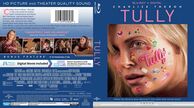I have always considered Jason Reitman's films to be the subject of realism, an outlet for idealism. "Juno" was the tolerance of the ideal state of single pregnancy in the United States at that time, and this "Tully" is the plight of the female self in the current American family. "Tully" truly shows the mother's difficulties in childbirth and parenting. Under the enormous pressure of life, the individual's spiritual needs are struggling in reality.
"Tully" is the embodiment of Marlowe's spiritual needs, which is exactly the same as watching Roman Polanski's "True Story" the day before yesterday. "Tully" is not trying to accuse anything, but to reflect on how the birth of a child has changed the whole family or a woman. The Tully imagined by Marlow can be seen from some details as Marlow when he was young. When he was with Tully, Marlow was happy. Now that he yearned for freedom when he was young, he has been bound by his family, and Marlow's pain is unspoken , Tully turned into a mermaid and saved Marlowe, a metaphor that only he can save himself. At the end, Marlowe must say goodbye to his past ideal (himself) before he can truly accept the change of the role of "mother", so "Tully" uses Self-salvation solves the plight of women. Women often assume more "roles" in the family. In the end, the husband and wife use the same earphone to cook dinner together. The lack of men is only covered by a few shots. This is the director A solution to the family's predicament.
Of course, mothers are great. They gave up their colorful lives for the sake of their families and accepted a cookie-cutter life. "We're going to do what we have to do, over and over again." Tully or Marlowe will eventually be with Self-reconciling, the relief from this predicament still seems too idealistic.
View more about Tully reviews











